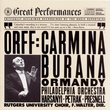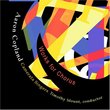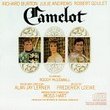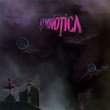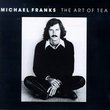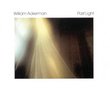| All Artists: Marlene Dietrich Title: Blue Angel Members Wishing: 0 Total Copies: 0 Label: Proarte Release Date: 1/29/1993 Genres: International Music, Special Interest, Pop, Broadway & Vocalists Styles: Europe, Continental Europe, Nostalgia, Easy Listening, Oldies, Vocal Pop, Cabaret, Traditional Vocal Pop Number of Discs: 1 SwapaCD Credits: 1 UPCs: 015095051721, 015095051745, 090204836727 |
Search - Marlene Dietrich :: Blue Angel
CD DetailsSimilarly Requested CDs
|
CD ReviewsKino's 2-disc DVD version keviny01 | 12/12/2001 (4 out of 5 stars) "Relative newcomer Marlene Dietrich's electrifying performance in the 1930 sound film THE BLUE ANGEL overshadows the perhaps even greater performance by Emil Jannings as a sexually-repressed professor. Her screen presence also more than overcomes Josef von Sternberg's rather static direction that was typical of early sound films, elevating this romantic melodrama into its classic status. Kino's region-free DVD contains both the German and the English versions of the film, each on a separate disc. Both versions look very clean for a 71-year-old film, although just a tad less sharp than I would have liked. The English version looks a bit cleaner still. The supplements include a side-by-side comparison of the two versions (with the German version shown on the left), and the English version indeed looks better. The German version is supported by optional, white-on-black-bar English subtitles. The black bars, of course, cover up part of the picture. I would suggest Kino use white, black-bordered lettering for subtitles in the future instead.The German version runs 102 minutes, and has a few scenes that are not shown in the English version due to censorship (such as the moment when Lola rotates her body to reveal her bare back side to her nightclub audience). The English version runs 100 minutes. Although it was supposedly made for English audiences, only Dietrich's role is all English-speaking, while the other actors speak a combination of both languages -- English for important dialogs, German for less important ones. The included audio commentary on the German disc is a mild disappointment. Although historian Werner Sedendorf's analytical comments are excellent, he just does not speak often enough. Long stretches of silence are frequent. Kino should have thought of filling the vacancies with additional comments (either by Sedendorf or someone else), especially when a lot of relevant topics are not adequately covered, such as the legendary collaborations between Dietrich and von Sternberg, the details about the censorship practiced on the English version, the period of German Expressionism that inspired directors like von Sternberg, etc. The DVD does include a generous amount of extra material. There is a wonderful biography section that includes photos and credits of about 30 cast and crew members. There are about 150 photos, some of which are then-and-now comparisons of some of the props and costumes in the movie. There are text screens of the film's production history. The best extras, unquestionnably, are the 4 film clips of Dietrich's screen test and concert performances. There is a memorable clip of the 1930 screen test of Dietrich singing "You are the Cream in my Coffee." There are 2 clips of televised concerts from the 60s and 70s showing Dietrich performing two of the songs in the movie (English renditions of "Falling in Love Again" and "Lola Lola"). There is another TV footage of her singing "You are the Cream in my Coffee" after reminiscing about her 1930 screen test." A classic of world cinema Joe Sixpack -- Slipcue.com | ...in Middle America | 09/21/2003 (5 out of 5 stars) "A German cinema classic from the late Weimar-era, and the film debut of super-sexy Marlene Dietrich, who is stunning in her role as a flirtatious, heartless cabaret singer whose carnal wiles bring an infatuated school teacher to ruin. But then, what is *really* responsible for his downfall? Dietrich as the temptress, his own repressed sexuality and concurrent fetishization of her beauty, or the close-mindedness of the society around them? As with much of the art of this era (in Germany and without), this film depicts the clash of the old world and the new -- the modern, open, crass, liberating and chaotic world of the individual against the older, stable, stifling, communal and "moral" world of the village and church. At any rate, the transformation of actor Emil Jannings from a fusty old humbug into a degraded shell of a man is a dramatic triumph, and the direction, by Josef von Sternberg, is flawless -- filled with darkness, closeness and brooding claustrophia. The new DVD version features both the German and English-language versions (the English version isn't dubbed, it was actually *acted* in English by the same German actors, and has a few interesting differences of moral tone...) and also includes, as an added bonus Marlene Dietrich's first screen test, which is hilarious, and a must-see for her fans." A True Classic Rebecca | 03/01/2000 (5 out of 5 stars) "The film that turned the head of Adolf Hitler and sky-rocketed Marlena Dietrich to international stardom is as fresh and orginal today as it was when it first hit theaters in Germany 70 years ago.With the aid of english subtitles, we are introduced to Dr. Immanuel Rath, an esteemed professor of an upper-class German prep school. A stern and authoritative man, his feathers are ruffled severely when he learns some of his students have been neglecting their studies in favor of visiting a night club, the Blue Angel, on the more sordid side of town to hear a beautiful singer named Lola Lola.When Rath confronts Lola, he becomes smitten with her. An infatuation which will eventually lead to his own professional and personal downfall.Emil Jannings (the first person ever to win a Best Actor Oscar) is marvelous as the stuffy and destructive Rath, and his ham-handed pirouette into complete emotional and physical breakdown is mesmerizing. Dietrich is equally fundamental in her role as Lola, slowly seducing, not just her fellow characters, but the audience too, with her entralling presence.Is it any wonder this film lives on?"
|


